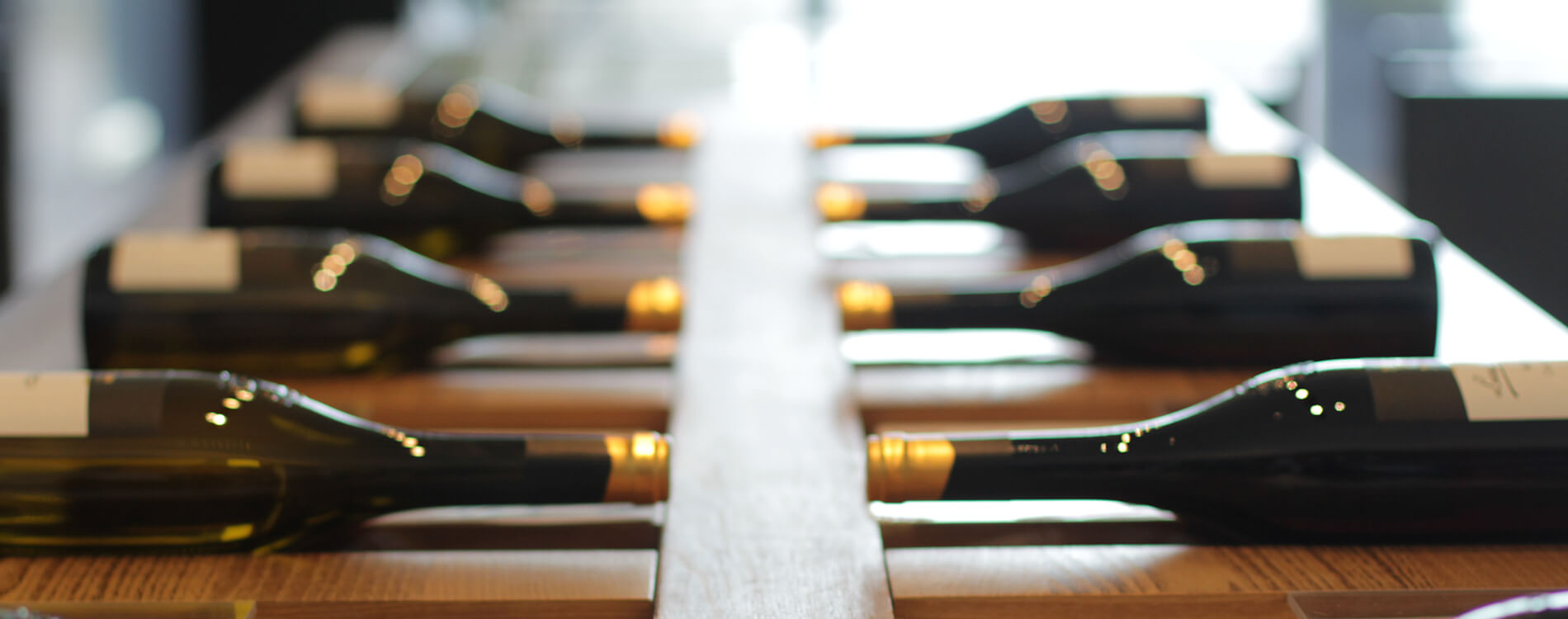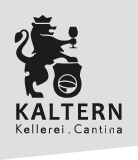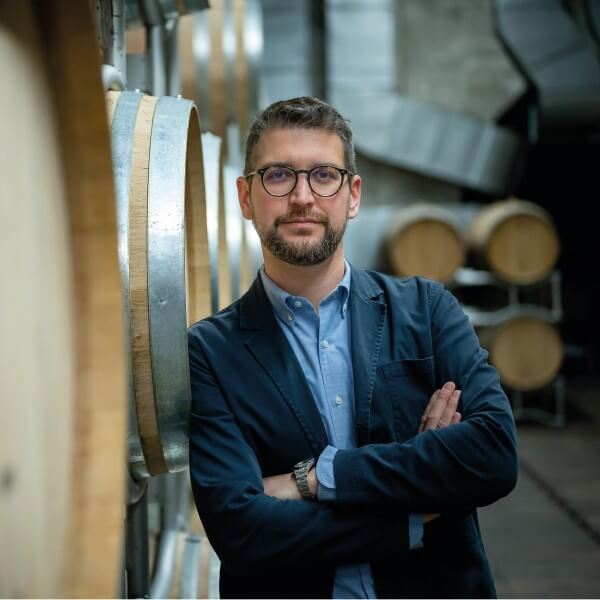7 QUESTIONS, 7 ANSWERS
1. How would you describe yourself in three words?
Thomas Scarizuola: Determined, straightforward, sociable.
2. What do you drink when you are not drinking wine?
Thomas Scarizuola: It rarely happens but, when it does, I like to have a beer, especially during the grape harvest. That’s when you need a beer after work every now and then.
3. What is your favourite smell?
Thomas Scarizuola: A good home-cooked meal.
4. What other talent do you possess apart from winemaking?
Thomas Scarizuola: I play French horn in the local band.
5. What is one of your finest experiences?
Thomas Scarizuola: Climbing Alto Adige’s highest mountain, the Ortler.
6. Where would you travel to tomorrow?
Thomas Scarizuola: Sicily.
7. Wine can...?
Thomas Scarizuola: Bring people together, provide enjoyment, give pleasure and create memories.
Career: You are quite young for a winemaker (Born 1989). Please tell us briefly about your career.
Thomas Scarizuola: I come from a farming family. My grandfather and father were wine and fruit growers, so I came into contact with winegrowing at an early age. Even as a child, I was allowed to help my grandfather in producing his house wine, a Schiava (Vernatsch). After graduating from the agricultural college in Auer, I studied viticulture and oenology in San Michele all’Adige and Geisenheim. During my studies I went to Sicily on a placement at the Donnafugata winery, followed by my first professional positions at the Tramin winery and on the Manincor estate. I had actually wanted to go to California afterwards but then, in 2013, came the offer from the Kaltern Winery, which was where I worked as deputy winemaker until March 2023. Today I am the head winemaker – a role that fills me with pride and joy.
Cellar philosophy: how do you imagine your wines and is it possible to taste your signature?
Thomas Scarizuola: The taste profile of our wines is in principle distinguished by our three lines, namely Quintessenz, Selection and Classic. But the most important aspect is of course that a wine is enjoyable, that it has a nice drinking “flow” and that it is fun to drink. Personally, I don’t like wines that are too broad, ones that overwhelm you and that you can’t go on drinking after the first glass. I would rather drink elegant wines that are juicy or have a mineral, salty quality. That’s how I see our wines too: you’d like to drink a second glass. And that applies across all of our quality levels. For me, it’s less about my own signature or making a name for myself through our wines. It’s not the winemaker that you should taste, but rather our vineyards and top sites, namely the terroir that we work on, with considerable passion and expertise, for each individual wine. The territorial identity of a wine, our values and of course the life style at Lake Kaltern – we want to get all this into the bottle. We have a range of excellent wines that unfailingly embody their origin. As head winemaker I see my task as to bring out the best from our sites and always to produce highquality wines.
Priority: how important is the vineyard for the cellar?
Thomas Scarizuola: The vineyard is the most important element and this is also reflected in our daily work. In the cellar, we always work relatively consistently according to the same procedures. But there are locations in our vineyards that each year produce superior wines to others. This is primarily due to the way that the wine is grown. The quality is determined in the vineyard, which in turn depends upon quite specific factors: the nature of the soil, the climate, the winegrower’s bravura – in other words, how each individual winegrower manages his or her vineyards, how they guide the growth of the vines and how they treat their grapes. Our task in the cellar is to organise ourselves in the best possible way so as to cultivate the top vineyards separately and bring out their character appropriately. Fortunately, all of our locations are either good or very good, with correspondingly high-quality grapes, which means we can then make fantastic wines. In the cellar, we control the direction and development of the wines to some extent, giving them the time they need and assisting them in their evolution. And that is for me what is so great about my job as a winemaker: witnessing how the wines evolve in the cellar, then thinking about how best to put them together. That’s what excites me. It is for example fascinating that, with good batches, you can tell on the first day of fermentation that it’s going to be something special.
Team spirit: Who is part of your closest team?
Thomas Scarizuola: A business can only succeed when everyone works well together. We lose as a team and we win as a team, which is why every employee is a valuable part of the winery and an important factor in our success. My most important colleague in the cellar is my new deputy winemaker, Maria Endrizzi. I have been working with her since 2016 and we make a well-coordinated team. She is young and ambitious and is a vital support for me. Equally important is Simon Ebner, who is responsible for the actual winegrowing. We have only been working together since spring 2023, but we are united in our conviction and passion for consistently high-quality winegrowing. Together with our members, we both want to get the best out of the locations and identify new ones that have the potential to become top sites: in other words, locations where cultivation, soil and orientation all match perfectly and can deliver excellent results in the future. Simon is similar to me: he is calm but determined, and he knows what he wants. It is fun to work with him. We discuss matters daily and I try to spend as much time as possible with him in the vineyards.
Extended family: what are your contacts like with the cooperative members?
Thomas Scarizuola: The members know me and I know them – after all, I have been with the Cantina Kaltern for many years now. There are always big meetings during the year, such as the spring assembly, to which all members are always invited and where major projects and current topics are raised and discussed, e.g. innovations in plant protection, new procedures or annual goals.
Climate change: how is Cantina Kaltern dealing with this, and what measures are you taking in the vineyard and the cellar?
Thomas Scarizuola: We have been observing the first effects of climate change for ten years now. Winegrowing in Alto Adige is generally shifting to higher altitudes – up to 1,000 metres above sea level. At lower altitudes we have had to adapt our working methods: there is less defoliation, so the grapes have more shade and are not excessively exposed to the sun. We have also in some cases moved certain varieties up to higher altitudes. Pinot Nero, for example, is particularly sensitive to the heat and is now increasingly cultivated on vineyards higher up so as to preserve the freshness and elegance that it needs. For the heavier red wines, on the other hand, climate change tends to be of benefit: these reds love the warmth and have come on spectacularly in recent years as the changed climate offers optimal conditions for their ripening. For white wines, however, the harvest time has in the past years altered throughout Alto Adige: by harvesting earlier, we can preserve the freshness and acidity and ensure these reach the bottle.


